showing entries tagged "budget"
by: IAMT
The Upside of Frugality
Frugal living discussions often talk about pinching pennies or “stretching a dollar.” A penny saved is a penny earned, or so the saying goes, but is that actually the case?
by: Banzia
Be Prepared, Because Life Happens
An emergency fund is an essential part of your personal finances. Its importance is stressed in almost every personal finance book and budgeting blog, and yet 26% of Americans currently have no emergency fund in place. Of those who do have an emergency fund, up to two-thirds do not have the often-recommended six months’ worth of expenses saved up.
by: Banzai
The 3 Hidden Expenses of Pet Ownership
According to the American Pet Products Association, nearly 70% of all US households own a pet. That translates into an estimated $86 billion spent on food, supplies, medical care and pet services in 2018. Although the love and companionship our furry (or feathered, or scaly) friends provide is priceless, it’s impossible to ignore the effect that pet ownership has on our wallet.
by: ChatGPT
Budgeting Blitz - Tackling Financial Goals One Minute at a Time
A Guide to Saving Money Effectively: Budgeting is a powerful tool that empowers you to take control of your finances and save money. When done right, budgeting can help you allocate your income wisely, minimize unnecessary expenses, and work towards achieving your financial goals. Here's a step-by-step guide to budgeting properly and maximizing your savings:
by: Banzai
Making and Spending Money
by: banzai
Learning to Budget
A budget is a plan for how you’ll spend your money. To create one, you divide your income (the money you get) into your expenses (the things you buy).
by: banzai
3 Jar Allowance for Kids
The sooner you teach your children the basics about budgeting, the better, and the 3-jar money system is a great way to get started.
by: banzai
Tracking Your Joint Expenses
It’s hard enough keeping track of your own expenses. So you shouldn’t be surprised that managing money as a team effort can test your patience, especially if your partner has a different method of keeping financial records—or worse, no method at all.
by: banzai
How To Manage Your Debt: Strategies & Tools
Even if you're financially responsible, life's unpredictable nature can sometimes catch you off guard, at times making it dangerously easy to fall into debt. Discover how to start managing your debt with these tips and tools.
by: banzai
14 Ways to Cut Household Expenses
Changes to the economy, your situation, or your goals may prompt you to take a look at your budget for opportunities to save. But where do you start? These lists will help you make changes, both big and small, to your budget.



